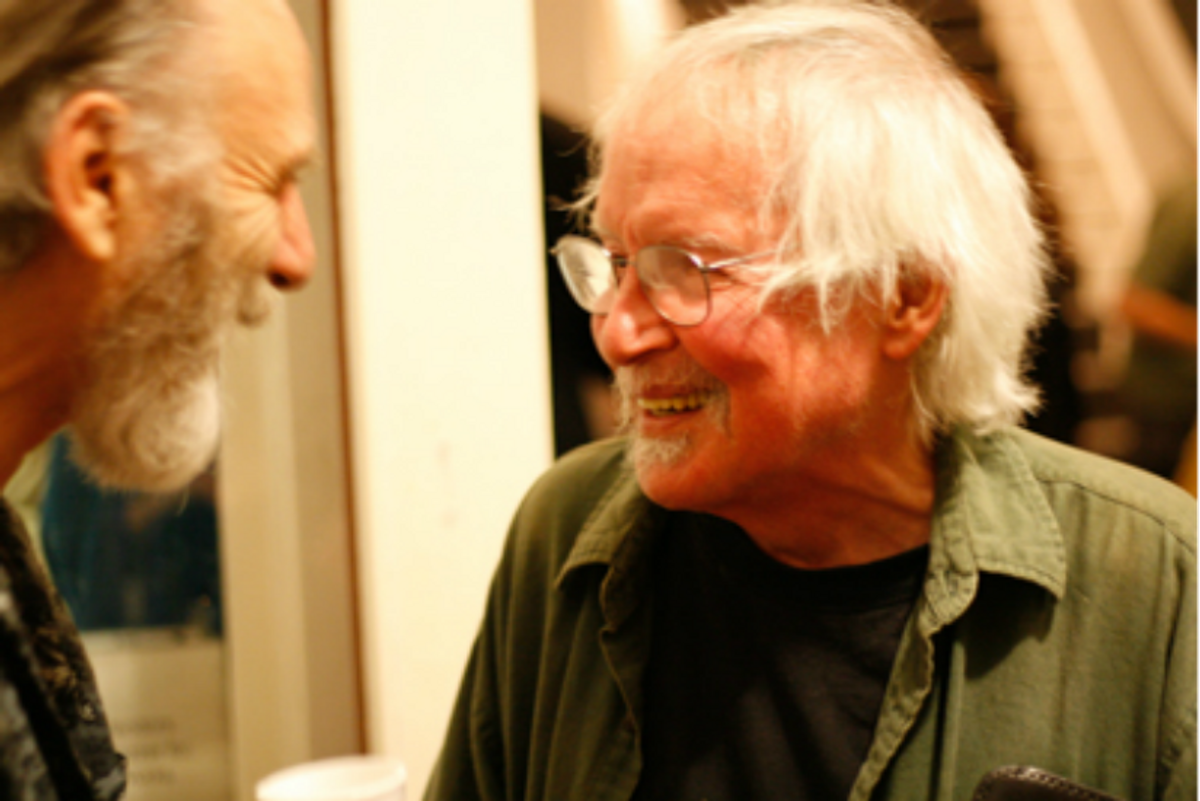
it was the Bomb
Shoah
it was void
spirit crisis disconnect
no subject but blank unrelenting
busted time
no future
suburban expanse into past
present nuclear (get it) family
That’s the opening of David Meltzer’s “Beat Thing: Commentary” and it is pulsating with classic tropes, recognizable to those accustomed to Meltzer’s work—personal and national history, entangled in myth; the jagged consonance, and crashing rhythms of post-bop jazz; mysticism at the edge of the void; the trademark irony lacing even the heaviest of subjects.
Meltzer left this world on Dec 31, 2016. He was a poet, whose influence on me is immeasurable—and that is a fact I come back to, every time I teach one of his poems.
Originally associated with the Beats, and in many ways embodying the poetic breakthroughs on the late 1950s, Meltzer’s work took many directions and forms. Notably, he was one of the first to translate Kabbalistic texts as poetry and engage with Jewish mysticism in ways that not only reflected a keen understanding of the material, but were also playful and irreverent, cutting through the dogma’s fodder straight to the mythic core of the images he resuscitated.
A poem I taught in my high school classroom a few months ago comes from David’s Copy: The Selected Poems of David Meltzer, and it is called “Face.” (The poem is published, in its totality in online magazine Light and Dust Anthology of Poetry). Poetry, I posited, is an “integral / Lower limit speech / Upper limit music,” recalling Louis Zukofksy’s terminology. And, there are poems edging right past that upper limit, such as this:
About face.
How to begin.
To make a face begin.
How.
From top to bottom
Or chin to dome?
They say he cant,
You can’t,
Face it.
Face the music.
They say you cant face it.
That music between you.
She hears nothing but music.
Words attack face like lice.
Attach to paper.
Music in circles.
She hears nothing but music.
Each eyebrow a seismograph.
En face.
Greek in her left eye.
Hebrew in the right.
I saw her yesterday.
In furs.
Grey streaked red with fox.
In a room playing Chinese checkers.
Very chic.
Art collects itself.
Look her up & down.
She leaves nothing behind.
She hears nothing but music.
Last night she was a fire.
Burning all the books.
Forests fold together like hands.
Words in each tree unpeel.
Race through the world.
Silk. I reach too late.
Incense of her shadow.
It isnt done with words.
She hears only the music.
It is faceless.
I am not there.
Music is all she hears.
The poem, the more you read it, is intoxicating in its musicality. And though nearly every line is clear, the ideas just don’t seem to logically follow one another. What’s this all about? And then of course, there are the mysterious lines—“art collects itself” and “words in each tree unpeel.”
I asked a student to read it straight through. Then, we went around the room, each reading one line at a time, listening to each other, playing off each other’s intonations. The energy was completely different, second time around, and the din of voices intensified the composite nature of the mythic persona that was being described. We didn’t notice a half-hour zooming by as we variously imagined this character and her sweeping motions across history, art scenes, her worming her way through linguistic play, and etymological rhythms.
And then I did something I’ve never done before. The day prior, I emailed David to ask him what he thought of when he wrote the poem. And so I showed my students David’s response:
Everpresent “she” — shekinah — the balanced etz hayiim — tones & notes of process — of birth & rebirth — “she” the abode of love of the beyond song takes us —
Face was a longer sequence which I edited for the book — a play too on the word “face” (& all its multiplying facets)–
As to what I was thinking/feeling/assuming during its writing, who knows now? — it’s more than 20 years ago —
I don’t know if this of any help to you or your students —
What we agreed on is that his response was no less of a poem but a continuation, and a resurfacing of the poem’s underside. Instead of interpreting the poem for us, as another poet might, he continued it, picking up two decades later, with humility and humor, opening it further yet. What a mighty pedagogical—and poetic—lesson.
Words in each tree unpeel. May his memory be a blessing.
Jake Marmer is Tablet’s poetry critic. He is the author of Cosmic Diaspora (2020), The Neighbor Out of Sound (2018) and Jazz Talmud (2012). He has also released two jazz-klezmer-poetry records: Purple Tentacles of Thought and Desire (2020, with Cosmic Diaspora Trio), and Hermeneutic Stomp (2013).